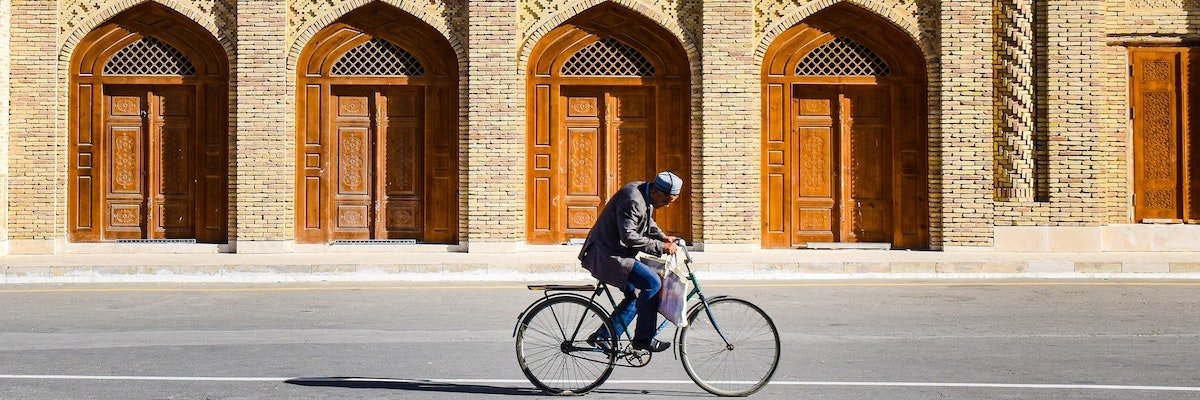Participatory Budgeting Opens Path for Democratic Reform in Uzbekistan
Since his inauguration in 2016, President Shavkat Mirziyoyev has paved the way for many policy reforms in Uzbekistan. Four of these reforms stand out as truly consequential.
The first two reforms are economic. The move to a mostly market-based foreign currency regime and the implementation of tax reforms delivered significant positive stimuli for economic growth and helped to open the Uzbek economy to foreign investment.
The third reform put an end to the abhorrent practice of state-sponsored forced and child labor. Possibly more than any other, this reform has earned Uzbekistan international praise. The Economist named Uzbekistan “country of the year” in 2019, describing it as a country “that abolished slavery.” Although labour rights and state intervention issues persist in cotton production clusters, the reform effort still successfully stigmatised forced labor among top officials, improved many labour conditions, and opened the Uzbek cotton and textile industry to international trade.
The fourth reform has garnered less international attention but is no less significant. The Citizens’ Initiative Budget is a participatory budgeting platform that lets the public decide where they think it is best to spend public money. The policy aims at better redistribution through decentralization of budget planning.
The initial outcomes are exciting: 7.8 million votes were cast in support of 61,500 spending projects in 2022. The votes determined the allocation of USD 100 million across 98 percent of all micro-districts (mahallas) in Uzbekistan. Compare this to 2021, when 6.72 million votes were collected on 69,700 projects. This year voter turnout increased, while the collective action improved with fewer—and likely more realistic—nominated projects. It is estimated that 33 percent of Uzbek adults participated in the voting process in 2022. A prominent blogger suggested that the participatory budgeting process was the country’s most competitive election. While tongue in cheek, this reaction to participatory budgeting points to its significance—people mobilise and vote for the option that best represents their needs.
Without true electoral accountability in the country, Uzbekistan’s central government often receives distorted signals from its people. That is why reforms that leverage the tools of participatory democracy are so crucial. Arguably the most significant recent example of distorted signals was when in July of this year Karakalpakstan’s legislature and government unanimously supported the constitutional amendments to dissolve its semi-autonomous status. Mass civil unrest erupted leading to deaths, injuries, and property damage. President Mirziyoyev later berated the Karakalpak lawmakers for failing to communicate the people’s concerns and wishes to the central government.
Alongside the participatory budget, another valuable source of signals is Uzbekistan’s media environment, which has become more free since 2016 as outspoken bloggers and probing journalists write for a range of independent digital media outlets. Even though the state-owned national television, radio, and print media have little impact on policymaking and there remains censorship, the Presidential Administration now regularly cites Telegram messages and local reports when demoting bureaucrats and municipality heads—a sign that the media is supporting accountability. Investigative reporting also sometimes forces municipal or regional authorities to abandon or adjust unpopular decisions before public anger escalates.
As promising such anecdotal occurrences of accountability may be, they do not and cannot accurately represent or equitably empower all the people of Uzbekistan. For one, there is a clear digital divide in how many people own smartphones and can afford or access the internet. Richer urban areas with better education, more infrastructure, higher incomes, and more active civil society enjoy a greater capacity to mobilise and take advantage of initiatives like participatory budgeting. These divides can be self-reinforcing. Therefore, as a rule, central governments try to keep urban residents more content.
Another reality is that such feedback channels mostly enable short term policy interventions, and do not necessarily help in gauging long term sustainable development priorities and population needs. While participatory approaches and media attention can help citizens respond when, for example, a green space is endangered, other important decisions about where to build roads and schools or when hire doctors and buy vaccines have much steeper collective action costs. Without regular bottom-up elections, in which politicians are asked to define their policy agendas and are held accountable to those agendas, it is difficult to collect informational signals on what the population wants even if everyone agrees on the essentials.
The Citizens’ Initiative Budget may prove a vital step forward in Uzbekistan’s political development if it opens the path to wider democratic reforms. Such reforms may be necessary if Uzbekistan wants to build on five years of strong economic growth—social scientists agree that the quality of political institutions determines economic outcomes.
Encouragingly, Uzbekistan is set to substantially expand its participatory budgeting platform. In 2022, the government will increase funding to nearly USD 250 million and has pledged at least USD 700 million to be disbursed in 2023. Moreover, the government has proposed that all infrastructure projects in micro-districts will be funded through participatory budgeting. A recently circulated draft white paper from the Presidential Administration suggests granting 28 districts expanded local governance authority, giving local legislators full-time paid employment, and empowering local residents with the ability to recall underperforming lawmakers and officials.
Ultimately, the essential condition for good governance at any level is enabling free and fair elections. Free and fair elections will optimise distribution of economic resources, enable growth, reduce corruption, and advance inclusion and happiness. As the success of the Citizens’ Initiative Budget shows, the Uzbek people are ready to take charge of their shared political future.
Photo: AXP Photography




